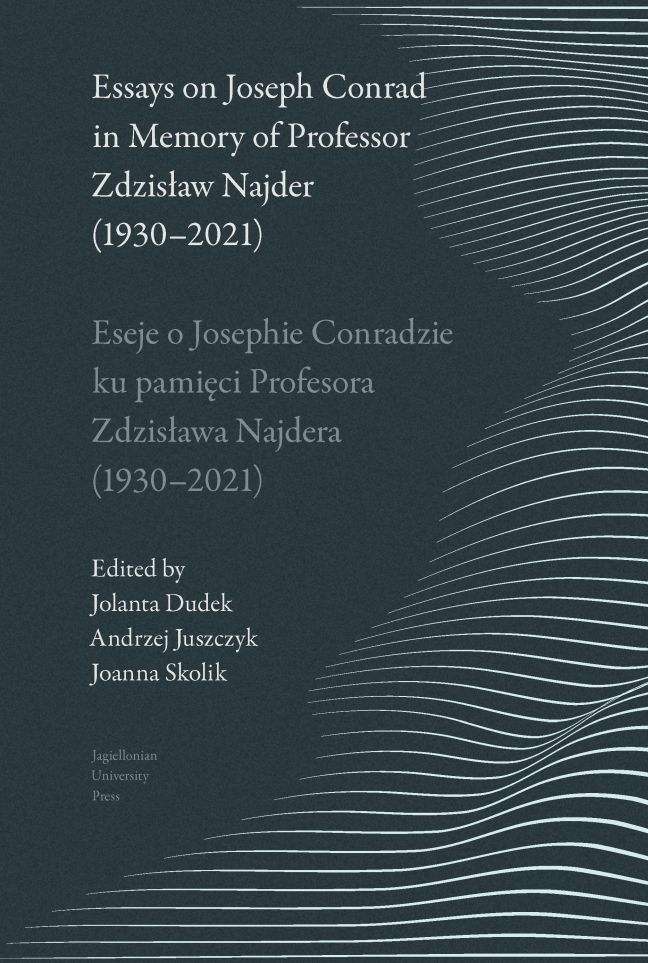Book contents
- Frontmatter
- Contents
- Part I
- Part II
- Bibliografia publikacji i audycji medialnych Zdzisława Najdera o Josephie Conradzie / A Bibliography of Zdzisław Najder's Publications and Media Programmes on Joseph Conrad
- Notes on Contributors / Noty o autorach
- Author Index / Indeks nazwisk
- Miscellaneous Endmatter
Accident and Design: Conrad and Contingency
Published online by Cambridge University Press: 01 March 2024
- Frontmatter
- Contents
- Part I
- Part II
- Bibliografia publikacji i audycji medialnych Zdzisława Najdera o Josephie Conradzie / A Bibliography of Zdzisław Najder's Publications and Media Programmes on Joseph Conrad
- Notes on Contributors / Noty o autorach
- Author Index / Indeks nazwisk
- Miscellaneous Endmatter
Summary
The Letters
Here is a jolting moment in a letter written during the Conrads’ honeymoon in Brittany:
Our captivity within the incomprehensible logic of accident is the only fact of the universe. From that reality flows deception and inspiration, error and faith, egoism and sacrifice, love and hate. That truth fearlessly faced becomes an austere and trusted friend, a companion of victory or a giver of peace.
(to T. Fisher Unwin, 22 August 1896, CL 1, 303)Not every author with only two well received but not widely purchased novels in print would be so firm with his publisher. These sentences come from what Joseph Conrad himself calls an “impertinent rigmarole” (CL 1, 304). He has just been reading a new Unwin title, A First Fleet Family, by two Australians, Louis Becke and Walter Jeffery. This historical romance, published in the Colonial Library series, is presented as the journal of a sergeant in the Royal Marines who sailed in the flotilla that reached Botany Bay, New South Wales, in January 1788. Conrad had told Thomas Fisher Unwin two weeks previously how much he admired Becke's By Reef and Palm, a collection of South Sea island stories, and how sorry he was to have missed a chance of meeting him. Conrad, a prodigiously fast reader, liked to judge by second, third, and even fourth impressions; going back to the collection had deepened his admiration for Becke's “perfect unselfishness” as a storyteller. Thus he had a “great curiosity” about the new novel—Becke's first (CL 1, 298). Unwin sent him a copy straight away.
Conrad's response to Unwin's gift is a discourse on point of view, detail, the inevitable, and the unpredictable. He complains that Becke has made a bad choice in giving the narration to Sergeant Dew, who is (to borrow a term from Henry James) an inadequate reflector with no eye for “the merciless vividness of detail” (CL 1, 303). Conrad argues both for a world view that must come to terms with contingency, accident, and chance, as well as an artistic view that the author's task is to write fiction that seems not accidental but bound to be the way it is. “Everything” in A First Fleet Family “is quite true and even obtrusively possible—but not a single episode, event, thought, word; not a single pang of joy or sorrow is inevitable” (CL 1, 302).
Information
- Type
- Chapter
- Information
- Publisher: Jagiellonian University PressPrint publication year: 2023
